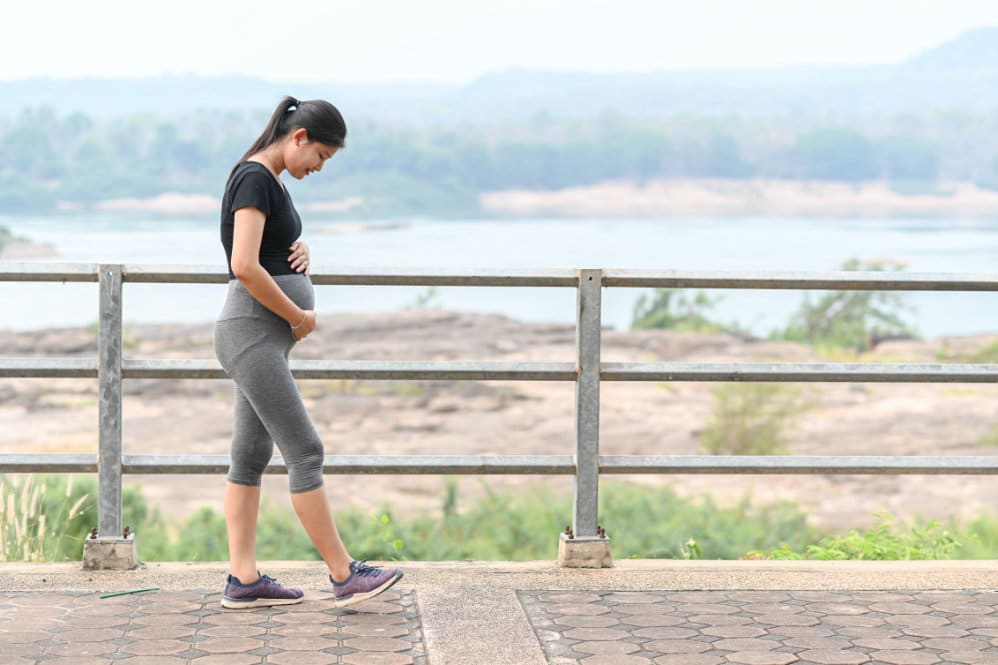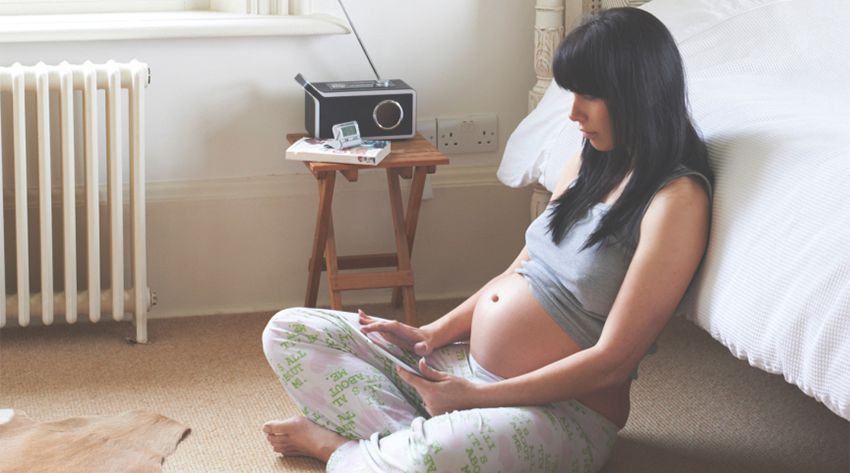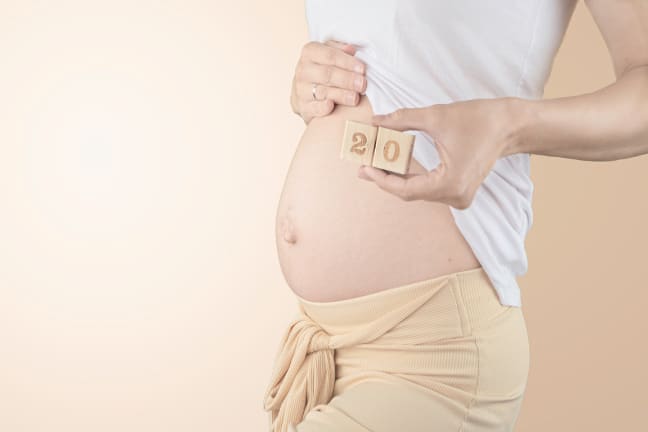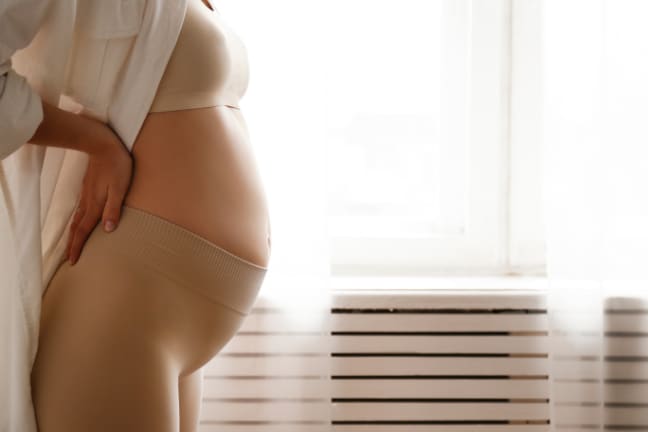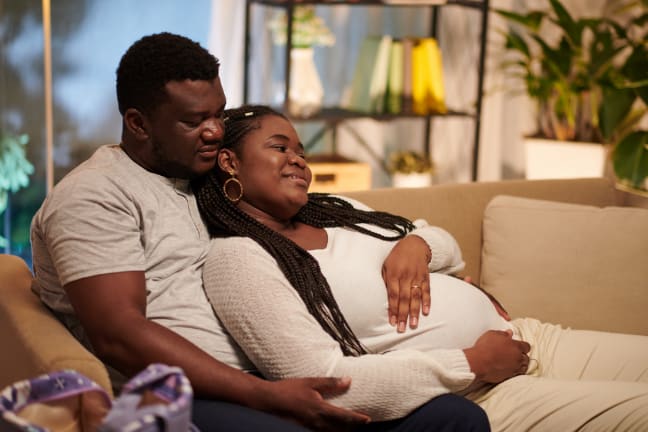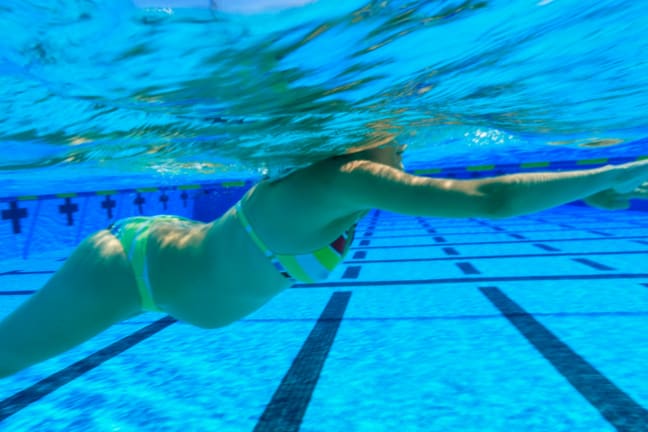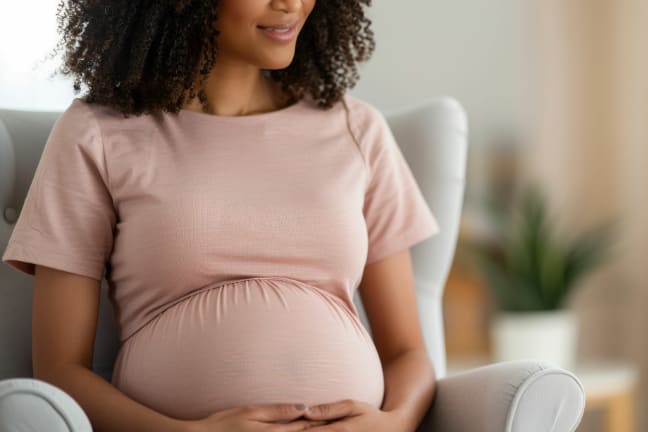Introduction
This week your baby will start to be covered in a waxy coating called ‘vernix’, this is so that baby’s skin is protected while they float around in amniotic fluid. Making a baby is hard, wonderful work, and you need to be well nourished by a healthy pregnancy diet to keep you both in great shape; we have tips on healthy snack swaps. Read more on what to expect at 19 weeks pregnant.
What happens at 19 weeks pregnant?
Your baby's size at 19 weeks is the size of a mango, and a very active one. Your little one’s arms and legs are moving and there’s a lot of kicking, pedalling, and wriggling going on. And because baby is still quite teeny there’s plenty of room to do acrobatics with somersaults and backflips becoming a regular occurrence. To change position, they can push their feet against the wall of your uterus - you might even see the little leg pushing and stretching your tummy!
At 19 weeks pregnant, your baby will start to be covered in a waxy coating called ‘vernix’ this is so that baby’s skin is protected while they float around in amniotic fluid. A good thing too – imagine how prune-y you’d get after 9 months in a bath!
You two aren’t necessarily on the same time clock so you might be woken up at night by some tummy acrobatics. It’s fun to pat back and say hello so your little one knows mummy is there for them. A few gentle strokes may also send baby back to sleep – they sleep around 20 hours at the moment.
What happens to your body at 19 weeks pregnant?
At 19 weeks pregnant, your bump will make you start to feel really pregnant. You’re carrying more weight and your kegel (pelvic floor) muscles are loosening, thanks again to Relaxin. With the extra weight of baby on your bladder you may find a laugh, a cough or a sneeze causes a small trickle.
It’s a great idea to start doing kegel exercises during pregnancy, as they’ll help you squeeze your baby out during labour and reduce your risk of experiencing incontinence after baby arrives. To find your kegel muscles imagine stopping the flow of urine when you go to the toilet or squeezing as though you’re gripping a tampon in your vagina.
When exercising, sit comfortably and squeeze 10 to 15 times in a row. Make sure you don’t hold your breath or tighten your stomach, buttocks, or thighs at the same time.
Once you get used to that, try holding each squeeze for a few seconds. As you get stronger, add more squeezes. Just be careful not to overdo it, and always have a rest between sets.
What to eat at 19 weeks pregnant?
Making a baby is hard, wonderful work, and you need to be well nourished by a healthy pregnancy diet to keep you both in great shape. For baby, a healthy diet can increase the chances of a healthy birth weight and could create good eating habits in early life. For you, a healthy diet could help make some pregnancy symptoms like constipation, morning sickness and fatigue less severe. You need to eat a full range of all the food groups. Fruit and vegetables should make up at least a third of your diet. Simple things like opting for lower fat yoghurt, skimmed milk and fruit instead of sugary snacks can make a difference. You might be eating little and often these days so it’s good to think of healthy snack swaps. Here’s a few:
- Swap a blueberry muffin for a currant bun with low fat spread
- Swap cheese straws for rice cakes with low fat cream cheese
- Swap your morning latte for a decaf coffee with semi-skimmed or skimmed milk
- Swap white toast, pasta and rice for brown or wholegrain versions
What are the symptoms of 19 weeks pregnant?
Week 19 pregnancy symptoms can include swollen feet and ankles. During your second and third trimester you may notice swollen feet and ankles. This is quite normal during pregnancy and is caused by water retention (which is often known as oedema). Sometimes it can also affect your hands and fingers, so be careful if you’re wearing rings. Drinking plenty of water helps relieve swollen feet (sounds counter intuitive considering it is caused by water retention, but it does work), also try to raise your feet up during the day and do gentle exercise. If you notice sudden swelling, make sure to contact your doctor as this can be a sign of pre-eclampsia.
What help can I get while pregnant
You’re nearly halfway through pregnancy, can you believe it? Like many mums-to-be, as time goes on more and more questions can pop up for you. What’s ok and not ok to eat? What are the signs of labour? Can I exercise when pregnant? It’s worth going to antenatal classes so you can discuss any questions or concerns. They’ll also be able to help you prepare for the birth, as well as teaching you how to look after and feed baby. Talking to other parents-to-be is always a real support too.
We have put together a handy guide with 63 checklists through your parenting journey right up to toddlerhood. It really is the Mother of all Checklists. Join the SMA® Baby Club for your free guide.
Need instant answers to your questions? Why not try our midwife live chat service. The chats are completely FREE for SMA® Baby Club members, they’re private and confidential, and you can access the online function from anywhere, and as frequently as you like. Available Monday to Friday 10am – 6pm.
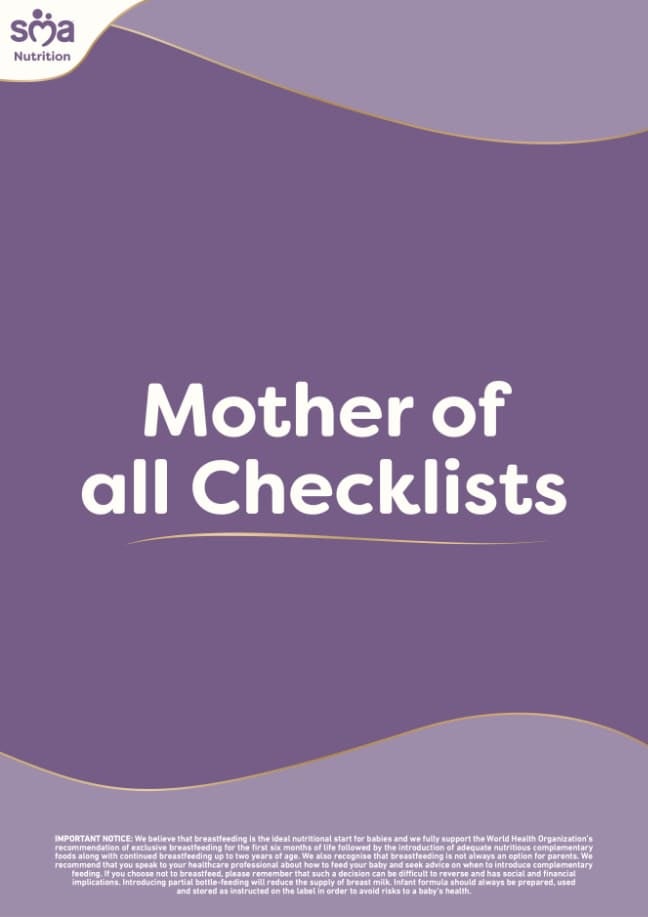
Join SMA® Baby Club to receive the Mother of all Checklists. With 63 checklists across your parenting journey from pregnancy through to toddlerhood we have you covered.
SMA Careline®
Need expert advice or support 24/7?
We have a dedicated team of friendly experts with access to expert healthcare professionals such as registered dietitians and nutritionists to answer your questions.



